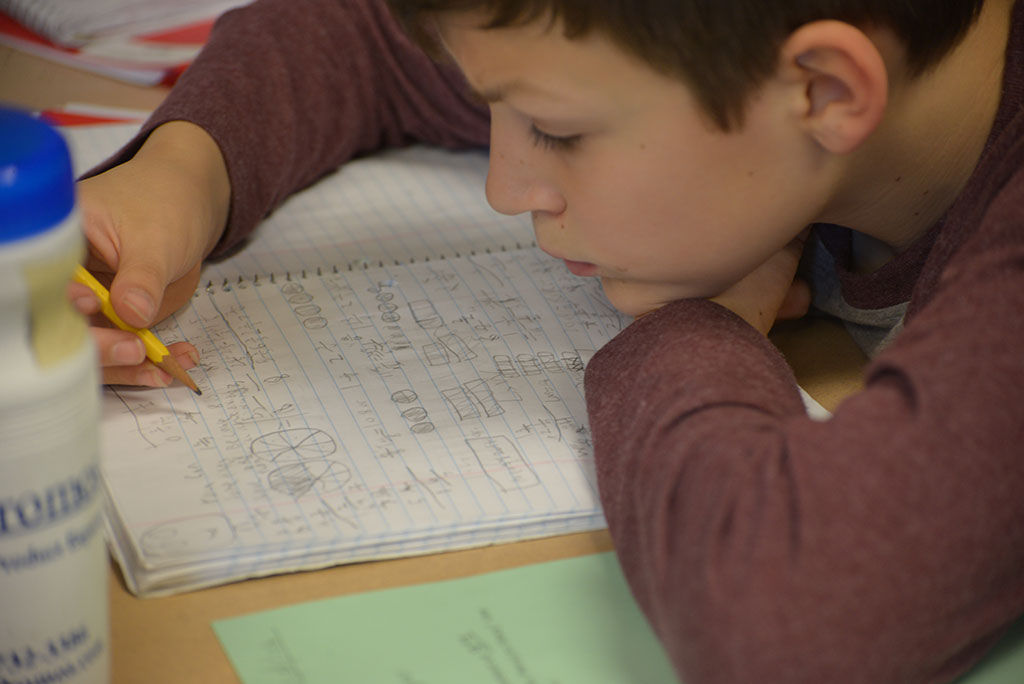Neag School educational psychology faculty have secured more than $5 million in federal funding through the U.S. Department of Education’s Jacob K. Javits Gifted and Talented Students Education Act for two new research projects centered on gifted education.
Advanced Math Instruction for Gifted Students
Launched on Oct. 1, Project Building Up Mathematics Proficiency Utilizing Push-In (Project BUMP UP) is led by principal investigator Del Siegle, Neag School professor and associate dean for research and faculty affairs. With $2.8 million in funding over five years, the Neag School will be working with partner researchers at the College of William and Mary to implement programming focused on advanced math instruction for more than 400 students in Grades 4 and 5 across 30 schools. Professors E. Jean Gubbins and D. Betsy McCoach are serving as co-principal investigators.
According to the researchers, the most popular model today for servicing gifted students is known as “pullout” programming; however, most of these programs do not provide advanced instruction in math. Project BUMP UP will look to supplement existing pullout programs with “push-in” programming that emphasizes advanced math instruction; three types of training will be provided to gifted specialists and classroom teachers.
The goal of the study is fourfold:
- to increase the identification of gifted students from underrepresented/underserved groups;
- to increase the math achievement of gifted students from underrepresented/underserved groups;
- to develop talents of high-achieving students not identified as gifted; and
- to improve student motivation and attitudes toward school and math.
“We are excited about this opportunity to test a new model for providing gifted education services,” says Siegle, who also serves as director of the National Center for Research on Gifted Education, which also is funded by the Javits program. “This research has the potential to involve more students from underserved populations and increase mathematics achievement.”
Supporting Academically Talented Students on the Autism Spectrum
In addition, UConn Board of Trustees Distinguished Professor and Letitia Neag Morgan Chair in Educational Psychology Sally Reis is serving as principal investigator on another Neag School research project funded by Javits. Project Twice Exceptional With Autism Spectrum Disorder (Project 2e-ASD), supported by a $2.6 million grant over five years, will focus on academically talented students with autism who are traditionally underserved in gifted programs.
“We need research to help these talented students, and to better inform their parents and teachers about how to help them develop their talents, and attend and complete college.”
— Sally Reis, Board of Trustees Distinguished Professor
Professor and Associate Dean for Academic Affairs Joseph Madaus is co-principal investigator. Two Neag School alumni are also co-investigators on the project: Nicholas Gelbar ’06 (CLAS), ’07 MA, ’11 MA, ’12 6th Year, ’13 Ph.D., an adjunct faculty member in educational psychology and special education; and Susan Baum ’85 Ph.D., Professor Emeritus for the College of New Rochelle in New Rochelle, N.Y., and the Neag School’s 2015 Outstanding Professional Award honoree.
When it comes to academically talented students with autism, or “twice-exceptional” students, the researchers assert that the field of gifted education has a very limited understanding not only about how these students are identified, but also how and if they succeed academically; whether or not they participate in gifted programs; and how successfully they transition to college.
“The idea for this grant emerged from the many questions we receive from parents and teachers of academically talented students who are on the autism spectrum,” says Reis. “They often ask: ‘What types of college programs will work best for my son and/or daughter or student with ASD?’ ‘Will he or she do better in a bigger college or smaller college?’ ‘Should they attend a community college program first?’ ‘What kinds of skills do they need to be successful in college?’ — and the honest answer is: We don’t know.”
Project 2e-ASD will examine how to identify — and teach — academically talented, high-ability high school students who are on the autism spectrum. Researchers will concentrate on the academic and learning strategies, personal skills, and enrichment strategies teachers and these students need to teach and learn to achieve academic success, with the goal of developing and disseminating various resources, including training materials and professional development modules.
With information lacking on how to advise parents and teachers about the skills needed or the types of high school programs to best prepare academically talented students with autism, Project 2e-ASD is particularly timely.
“We need research to help these talented students, and to better inform their parents and teachers about how to help them develop their talents, and attend and complete college,” says Reis. “That is what we hope to accomplish with this grant.”



